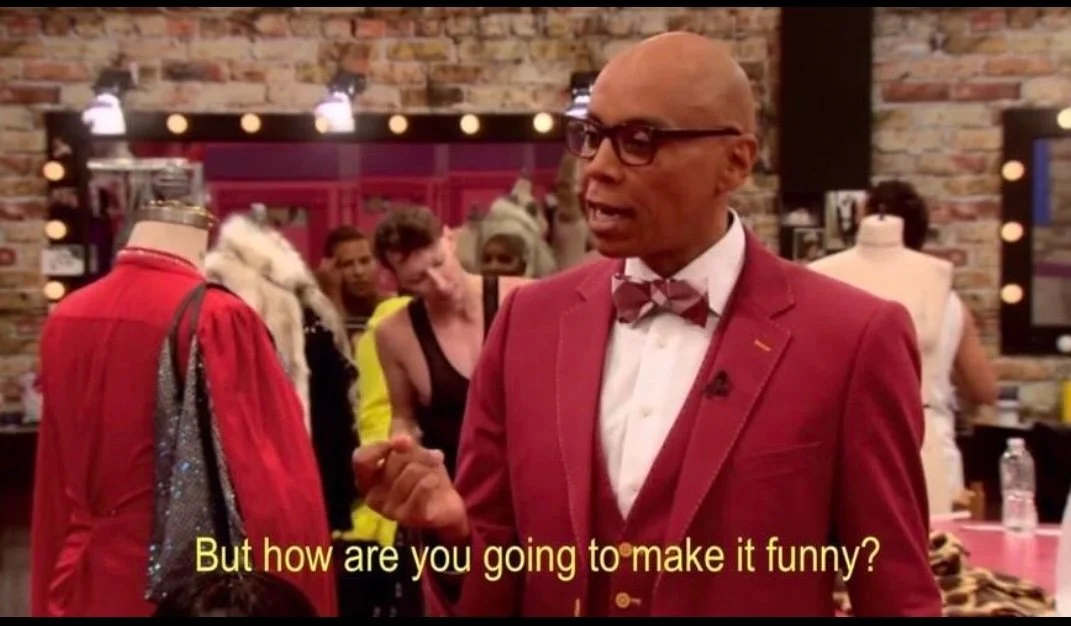Sydney Sweeney's “great jeans” and ”great genes” — Worthwhile Language Advice
Worthwhile language advice
Have a question about language at work?
You can send it to admin@worthwhileconsulting.com
All questions are anonymized.
If you’re wondering about it, chances are good someone else is wondering about it too!
“People are saying that this new Sydney Sweeney ad is eugenicist but I’m not really seeing it. Help me connect the dots?”
There’s been a lot of buzz this week about a new ad campaign for American Eagle jeans. The ads, released on July 23, feature actor Sydney Sweeney, who is white, with large blue eyes, fair skin, long straight blonde hair, and a slender but curvy build.
In one ad, the camera pans up Sweeney’s prone body as she zips up her jeans and says, “Genes are passed down from parent to offspring, often determining traits like hair color, personality, and even eye color.” Then, as the camera rests on her face, Sweeney turns to the lens and says, “My jeans are blue.” Her face is then immediately overlaid with the tag line, “Sydney Sweeney has great jeans.”
The ad is engaging in some wordplay based on the homophones genes and jeans. We’ve got “great jeans” that you can buy from American Eagle and “great genes” that Sweeney inherited from her parents.
Wordplay is fun, right? So, is this wordplay a problem? Should we be upset by it?
Using attractive women’s bodies to sell things is nothing new — in fact, it’s standard practice here in the US and elsewhere. Both video and print ads are filled with women posing with an awareness of the camera’s gaze and presumably the male gaze aimed at them.
We’re also familiar with sexualizing young women to sell jeans, even girls under the age of 18.
A 15-year old Brooke Shields looks at the camera to sell Calvin Klein jeans (1980)
Angela Sumner, the campaign director, wrote of the “great jeans” tag line, “We wanted something… just suggestive enough to make you do a double take. A nod to the denim ads of the past, reimagined for right now.” In other words, an “edgy” campaign for 2025 that would get people talking.
So why is one part of the internet so unhappy about this new ad campaign, calling it eugenicist and like Nazi propaganda while another part of the internet is scoffing at these claims and calling the criticism “absurd” and “pearl clutching”?
There’s a real issue out there when it comes to interpreting words and deciding if they are problematic or acceptable. I’ve seen it when a manager or HR rep is asked to evaluate potentially harassing or discriminatory language produced by an employee. And I see it all the time when people out in the world evaluate language like we what we’re seeing in this ad.
The issue is this: without training, people often stop at the literal meaning of words, what we call semantics. If there isn’t an obviously “bad” word or phrase, if there aren’t any curse words or insults or slurs, then they honestly don’t see the problem. And again and again, they decide that something is acceptable when, in fact, it should be unacceptable.
When we “read” a video like this one, we can look at three rhetorical components:
The text. The words used.
The subtext. The hidden messages suggested by the words.
The context. The circumstances and setting for the words.
The text, once again, is: “Genes are passed down from parent to offspring, often determining traits like hair color, personality, and even eye color…My jeans/genes are blue.” And “Sydney Sweeney has great jeans.”
No obviously bad words, insults, or slurs.
_____
So let’s move to the subtext. We’re told that Sydney Sweeney has great jeans, with a subtext that she also has great genes. Her “great genes” have lifted her up to make her a literal and figurative model for the rest of us. And how does the ad describe those great genes right at the moment she turns her eyes to the camera? As blue.
Sweeney is wearing blue jeans. And Sweeney’s genes have given her blue eyes. Sweeney’s genes and jeans are being labeled great. The clear subtext here is that great genes = blue eyes.
The further subtext is that to look more like the object of desire, an attractive white woman with blue eyes, you can buy American Eagle jeans.
_____
This text and subtext are set within the context. And here the context is a second Trump administration in the US, which began just months before this ad campaign was produced.
Trump’s reelection has emboldened people who hold racist and white supremacist views to be more open and explicit with them. And to put out more “dog whistles,” where the white supremacy is found in the subtext rather than the explicit text.
The word great is particularly loaded and an example of what we call intertextuality.
“Sydney Sweeney has great jeans” is playing off of “Make America Great Again.” Which at this point is well established as a racist and white supremacist rallying cry.
The subtext of both these mottos is that great = white. That:
White people’s genes are better genes.
Whiteness is better.
White people are better.
Nazi propagandist Leni Riefenstahl talks to American athlete Glenn Morris in preparation for her eugenics-coded film documenting the 1936 Berlin Olympics
By reading the text, subtext, and context of the American Eagle ad, we see that it is encoded with a white supremacist message.
But how does this relate to eugenics?
Eugenics is a pseudoscientific movement where a “self-appointed group that perceives itself as superior can “improve” a human population through selective breeding or actions taken against individuals judged to be inferior.”
In eugenics, one group is believed to be inherently superior to another group. That superiority is seen as starting with genetics and then permeating all aspects of social life: intellect, physical prowess, beauty, artistic production, and more.
Eugenics is part of white supremacy. While many people today associate eugenics with Nazi Germany and their program of Aryan racial superiority, the Nazis actually took inspiration from US eugenics programs.
There is a whole constellation of superiority embedded in both eugenics and white supremacy, including currently ascendant White Christian Nationalism:
White people are superior to non-white people.
Abled people are superior to disabled people.
Male people are superior to non-male people.
Cisgendered straight people are superior to people who are LGBTQ+.
Both white supremacy and eugenics dehumanize the people who are seen as inferior. These people are not conceived or treated as fully human, valuable, and deserving of human and civil rights.
Eugenicist beliefs have violent consequences:
“ugly laws” and the institutionalization of physically and intellectually disabled people
forced sterilization of African Americans, Native Americans, Mexican Americans, and other “undesirable” people of color
sex selection of fetuses that leads to significantly more men than women, which can lead to higher levels of violence
support of or disinterest in genocides where the targets are people who aren’t white
Saying “I was just joking, lighten up!” is a common response when someone is called out for saying something inappropriate.
And we’re seeing that in defense of the American Eagle ad campaign, as if the humor excuses the racist messaging.
Sure, wordplay can be fun, but unfortunately, eugenics and white supremacy are deadly serious.
“Just joking” is a deflection often used by abusers to justify harmful things they have said.
And saying something aggressive in a humorous way is a common form of boundary testing by abusers, including racists, narcissists, and sexual predators.
You may feel like a killjoy when you deconstruct a joke to show that it’s hiding something unpleasant or harmful or abusive. I myself am a big comedy nerd, and would prefer to just relax and enjoy funny things.
But it’s important to push back when people are testing boundaries like, “Is it ok to say racist things here?”
And if someone claims it’s just wordplay or a joke, you can use text, subtext, and context to uncover the whole message and say something like, “I’m not ok with eugenics and white supremacy. Are you?”
Copyright 2025 © Worthwhile Research & Consulting
Worthwhile offers cutting-edge digital training along with “train-the-trainer” options. Scalable, cost-effective, and always science-based, we offer video courses on optimized language for smoother sales, optimized language for customer service, strategic language for managers, inclusive language at work, and more.






